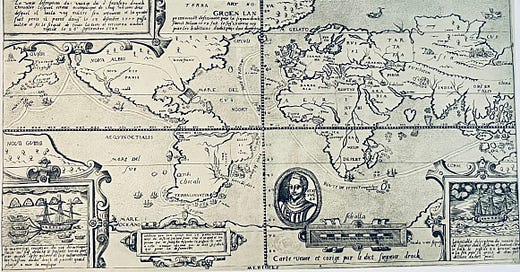[image on front of the LP; from the notes on the back: “Legend portrays a harp brought to the New World by a crew member of Sir Francis Drake’s ship, the Golden Hind, some 400 years ago. It was left behind on the shores of Nova Albion and was found by a medicine man who recognized it as a sacred object. It was placed upon an altar at land’s end on a cli…
© 2025 Alexander Riley
Substack is the home for great culture




